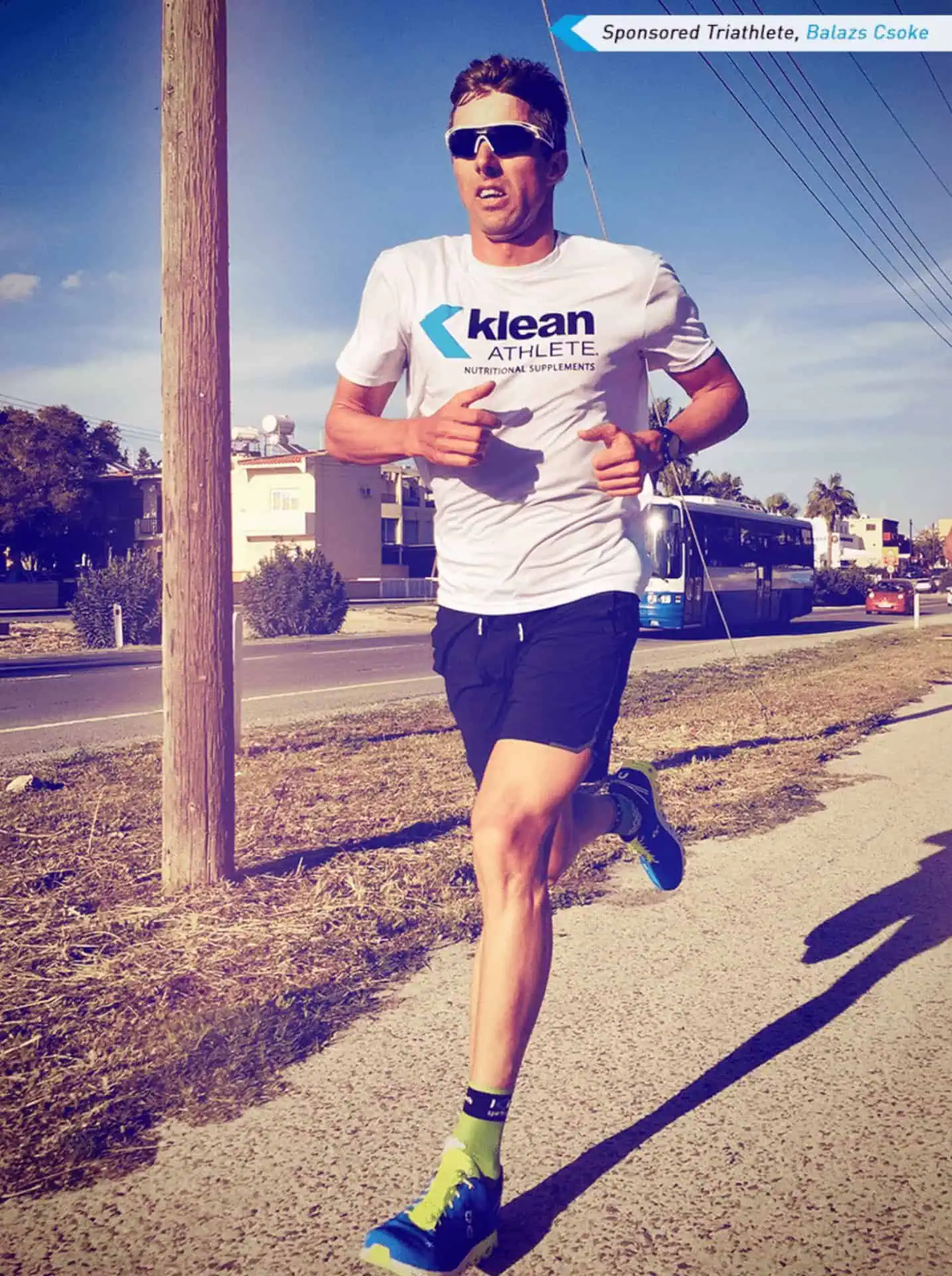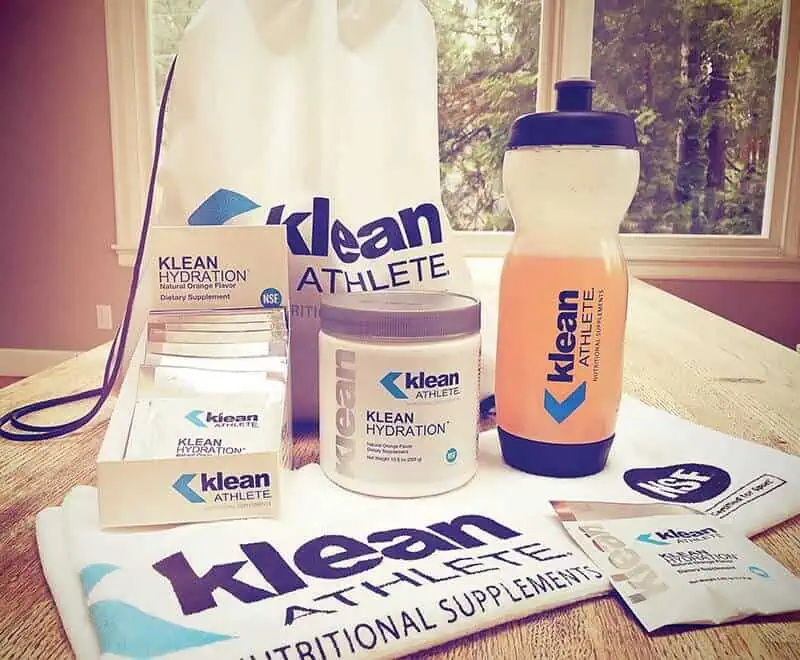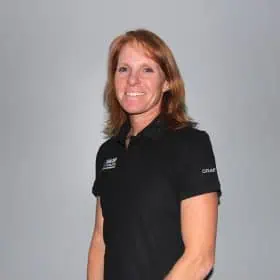By Karlyn Grimes, MS RD LDN CSSD
Let’s have a toast to the most critical nutrient to athletes – good old water. Water is hands down the most important molecule in biology. H2O acts as a coolant, solvent, solute, carrier, messenger, lubricant, shock absorber, ionizing agent and reactant, just to mention a few of its vital roles. To look at it simply, without adequate water intake, you will be left in the dust. So take a moment to see if you are abiding by the following hydration tips, which can safeguard your health and maximize performance.
Hydration Tip #5: Determine Your Hydration Rx
Women should aim for 95 ounces/12 cups per day of fluid while men need to strive for 130 ounces/16 cups per day. These values will vary depending on dietary habits, exercise intensity and duration, and environmental temperature and humidity. Lean muscle tissue is more than 75% water, so when your fluid intake is compromised, your strength, power, and aerobic and anaerobic capacity will decline. In a nutshell, you need extra fluids if you consume excessive amounts of protein or sodium, exercise for long periods of time, or train in hot or humid environments, including indoor training facilities.
Hydration Tip #4: Eat Your Fluids
Your hydration Rx includes fluids contained in beverages, including sports drinks, coffee, tea and soda, and foods. Foods such as fruits, veggies, yogurt, pastas and cereals contribute about 20% of your daily fluid needs. These foods also contain minerals, salts, and natural sugars that help optimize hydration. One last thought: Since exercise shunts blood from your digestive tract to your muscles, minimize food intake as a means for hydration within one to two hours of exercise. Focus on fluids within this time frame.
Hydration Tip #3: Keep It Clear
If your urine is dark in color, more of a tinkle than a flow, smelly, or infrequent, you are dehydrated, and your cardiovascular and thermoregulatory functions will suffer. You can also try the pinch test. Pinch and briefly hold the skin on the back of your hand with your pointer finger and thumb. Let go. If your skin does not rapidly return to normal then you are dehydrated. Regularly check to see that the color of your urine is lightly colored, and ensure that you are urinating at least four times per day and within two hours of training or competition.
Hydration Tip #2: Watch Your Weight
A 1-2% weight loss, or 1-3 pound loss, in a 150-pound individual during training or competition can lead to profound performance detriments, both acutely and chronically. Ideally, athletes should drink enough fluids during exercise to prevent weight loss. To evaluate your hydration routine, periodically weigh yourself before and after working out, especially when changing workout routines or upon exposure to seasonal or altitude changes. For every pound of weight lost, replace 16-24 ounces of fluid within two hours after working out. Note, weighing more after working out than you did before indicates that you consumed more than you needed, so back off next time because excessive water intake is also dangerous.

Hydration Tip #1: Choose Your Liquid Weapon
Generally, if you are working out less than 60 minutes, water is your best bet. Once you reach the 60-minute mark, on hot, humid days or when you are running on empty (i.e. morning exercisers), choose a 6% carbohydrate beverage that contains multiple carbohydrates (glucose, fructose and dextrins) and key electrolytes (sodium, potassium and calcium). These ingredients will maximize fluid, electrolyte and glucose ingestion and absorption. Try Klean Hydration™ during your next workout to see if it gives you the performance edge you crave, especially if you are a salty sweater as indicated by dry, white residue on your clothing after working out. Consume 4-8 ounces every 15-20 minutes of activity to prevent dehydration. After your workouts, seek out 16-24 ounces of fluid for each pound lost. To estimate your intake, one medium mouthful of fluid translates to ~1 ounce.‡


Karlyn Grimes, MS RD LDN CSSD, is the founder of Simply Simple Health (SSH) and author of The Everything Anti-Inflammation Diet Book. SSH creates and administers nutrition, fitness and health education programs for athletes, educators, coaches and sports teams at schools and colleges throughout the Boston area. Its programming includes individual and group sports nutrition counseling, as well as sport-specific personal training. SSH also contributes to numerous academic textbooks and magazines.
Karlyn has a dual Master’s degree in nutrition and exercise physiology from Boston University and a Bachelor of Arts degree in biology from Colgate University, with a minor in economics. She is a registered dietitian (RD) with the Academy of Nutrition and Dietetics, a certified specialist in Sports Dietetics (CSSD) and a licensed dietitian nutritionist (LDN) in the state of Massachusetts. She is currently a faculty member in the Nutrition and Biology Departments at Simmons College in Boston, where she teaches sports nutrition, medical nutrition therapy, exercise physiology, anatomy and physiology, general biology, and numerous other courses.




